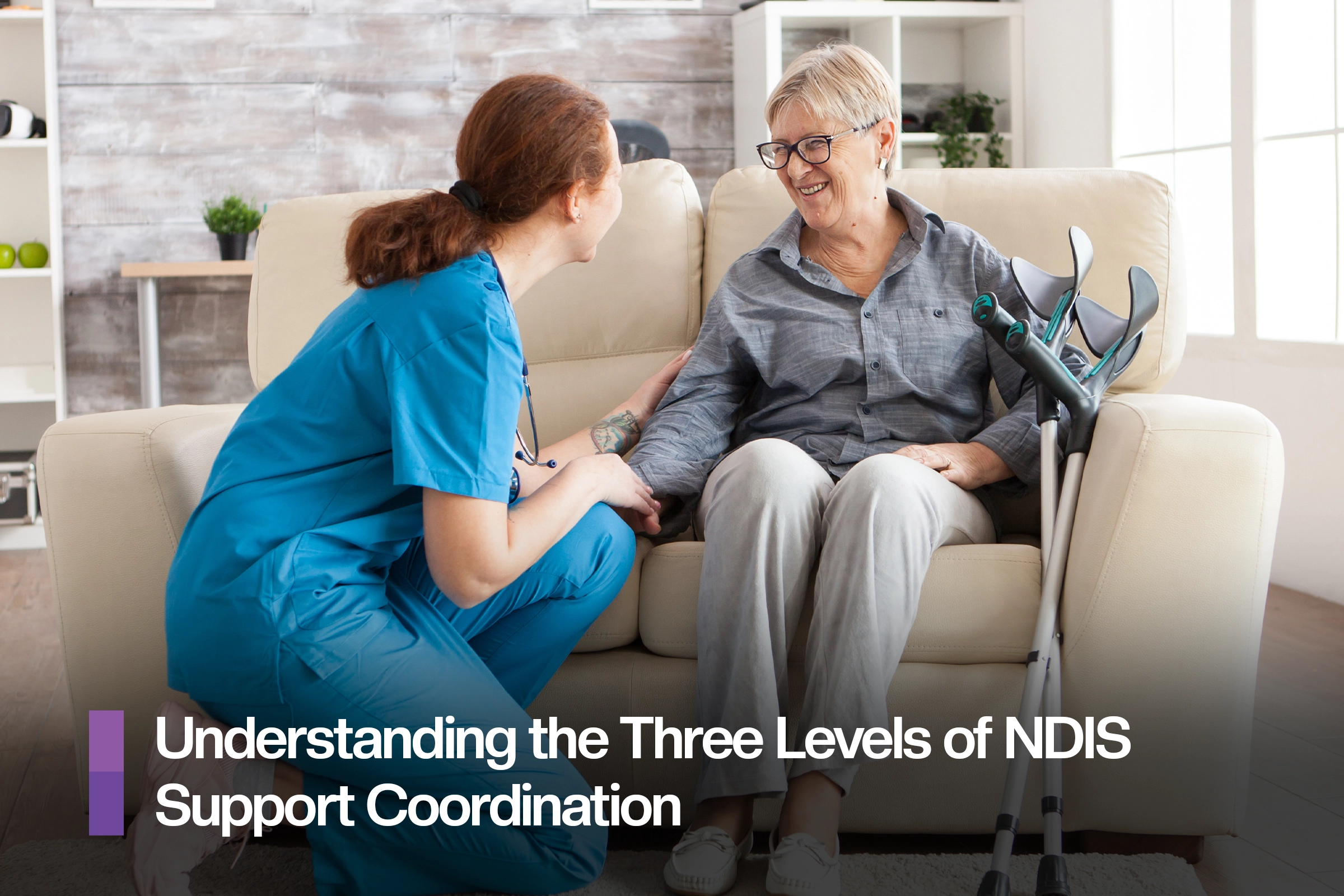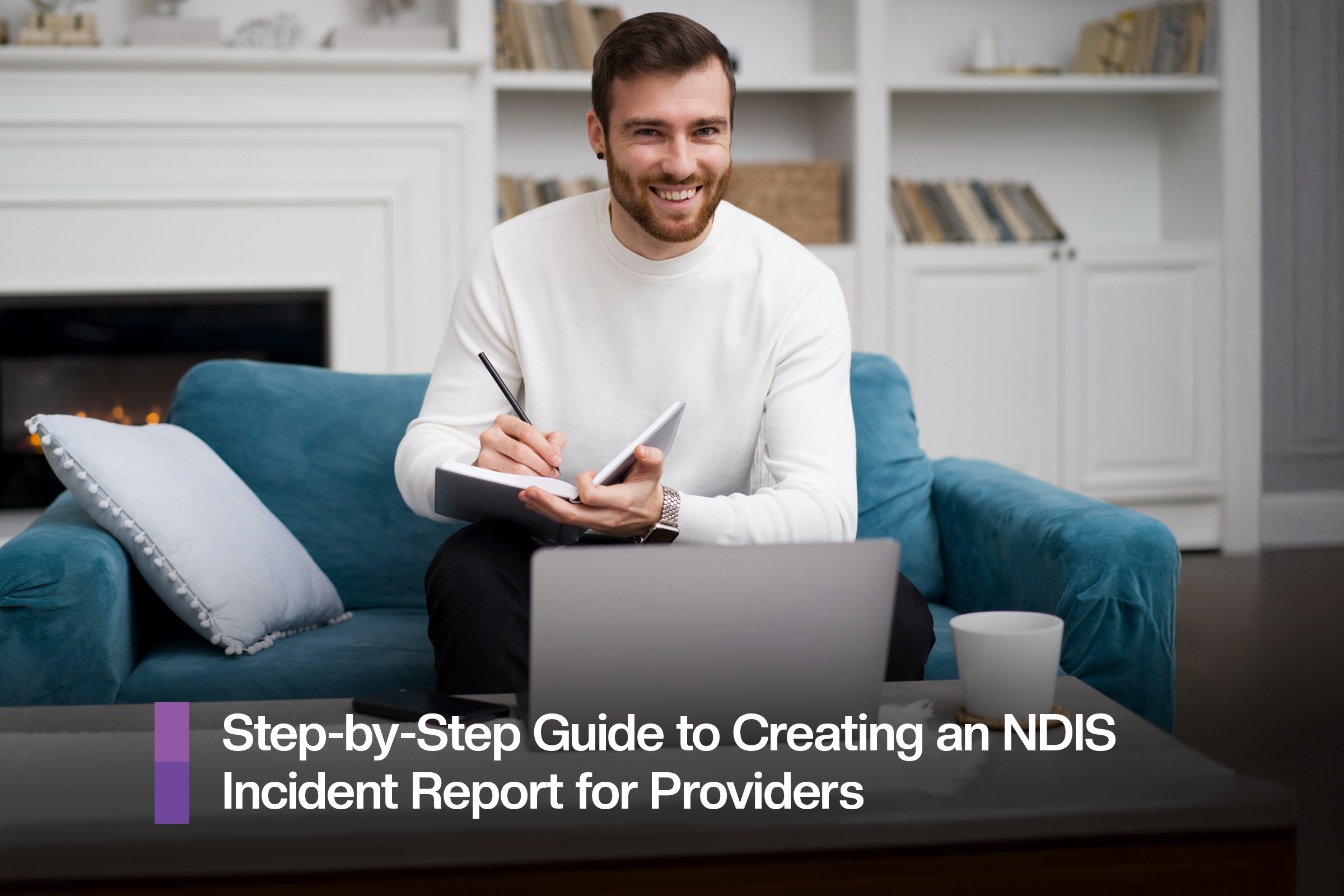Understanding the Three Levels of NDIS Support Coordination
Discover the three levels of NDIS Support Coordination. Learn who are Support Coordinators, why Support Coordination matters, and how imploy is soon bringing expert Support Coordination services to empower participants across Australia.

Navigating the National Disability Insurance Scheme (NDIS) can feel overwhelming - especially when it comes to using your plan effectively. That’s where Support Coordination comes in. Support Coordination helps participants make the most of their NDIS plans, connect with the right services, and build the confidence to manage support independently.
At imploy, we believe every participant deserves the right level of support that matches their goals, circumstances, and aspirations.
This article explains the three levels of NDIS Support Coordination, when each is appropriate, and how to determine which level best suits your needs.
What is NDIS Support Coordination?
The National Disability Insurance Scheme (NDIS) provides Support Coordination as an essential service to help participants make the most of their plans and achieve their goals. It’s a capacity-building support designed to help individuals understand their NDIS plan, connect with the right providers, and develop the skills to manage and maintain these supports independently. The NDIS offers three levels of Support Coordination, each designed to suit different levels of participant needs and complexity.
Support Coordination bridges the gap between having an NDIS plan and using it effectively. It ensures that participants receive the right mix of supports at the right time - tailored to their individual goals, preferences, and circumstances.
For providers, Support Coordination plays an equally important role. Skilled coordinators ensure service delivery runs smoothly, strengthen participant engagement, and contribute to better overall outcomes.
In short, Support Coordination transforms plans into progress - helping participants turn their NDIS funding into real, life-changing results.
Who are Support Coordinators?
Support Coordinators are the skilled professionals who guide participants through the implementation of their National Disability Insurance Scheme (NDIS) plan. They are not direct care workers - their role is focused on coordination, empowerment and capacity-building.
In many cases, Support Coordinators act as the primary point of contact between the individual with a disability and the various service providers and organisations that can assist them.
Specifically, a Support Coordinator:
- Helps participants understand their NDIS plan, their rights, and their responsibilities.
- Helps you interpret your NDIS plan and understand what each budget covers.
- Connects the participant with appropriate service providers, community supports and informal networks.
- Works in partnership with the participant to build skills so that the participant becomes increasingly confident in managing their plan and support.
- Responds to changes or challenges in the participant’s circumstances - redesigning or adjusting supports so their goals remain on track.
- Acts as a mentor, advocate and facilitator - ensuring coordination across multiple supports and systems when needed.
Why Support Coordination Matters?
Many participants find managing their plan challenging - from understanding funding categories to finding reliable service providers.
A Support Coordinator helps you:
- Understand your plan and goals clearly.
- Connect with services that align with your needs.
- Coordinate multiple supports so they work together effectively.
- Build skills for independence and self-management.
Ultimately, the goal is to empower you to make informed choices and get the most value from your NDIS plan.
At imploy, we’re preparing to introduce Support Coordination services - designed to deliver person-centred, goal-driven support that helps participants thrive with confidence and independence.
The Three Levels of NDIS Support Coordination
The NDIS offers three levels of Support Coordination, each designed to meet different levels of complexity and support needs.

1. Support Connection
Support Connection is the entry-level Support Coordination service. This level of support is designed to help individuals with disabilities connect with the services and resources they need to live independently.
Purpose:
Support Connection is the entry-level tier. It helps you understand your plan and start using your support confidently.
What it involves:
- Explaining your NDIS plan and budgets.
- Linking you to formal, community, and informal support.
- Assisting you to set up service agreements and appointments.
- Helping you gain the confidence to manage your plan independently.
Best suited for:
Participants who are relatively independent and only need short-term help to connect with support.
2. Coordination of Supports
Level 2 Support Coordination is a more comprehensive service that provides individuals with disabilities with a higher level of support. This level of support is typically provided to individuals who require additional assistance to access and coordinate the services they need to live independently.
Purpose:
This is the most common level of support coordination. It provides ongoing assistance to strengthen your ability to manage multiple supports.
What it involves:
- Helping you build a network of trusted providers.
- Ensuring your support works together effectively.
- Reviewing your plan to ensure it meets your goals.
- Supporting you to resolve service delivery issues.
Best suited for:
Participants with moderate or multiple support needs who benefit from continuous coordination and relationship management.
3. Specialist Support Coordination
Specialist Support Coordination is the highest level of Support Coordination. This level of support is designed for individuals with disabilities who require specialised assistance and support to access and coordinate services. Specialist Support Coordinators have specialised training and expertise in a particular area of need, such as mental health, housing, or complex support needs
Purpose:
This is the highest level of support coordination - for participants with complex or high-risk needs that require specialist expertise.
What it involves:
- Delivered by professionals such as social workers, psychologists, or therapists.
- Coordinating across multiple systems, such as justice, housing, and mental health.
- Managing crises and reducing risks.
- Building long-term stability and capacity.
Best suited for:
Participants with highly complex or unstable situations, requiring intensive and expert coordination.
Comparison of the Three Levels
How to Know Which Level You Need?
The NDIS or your Local Area Coordinator (LAC) will determine your level of Support Coordination during your planning meeting.
To make sure you get the right level:
- Be clear about your goals: Explain what you want to achieve.
- Describe your challenges: Be honest about any barriers you face.
- Discuss your situation: If you manage multiple supports or systems, mention this clearly.
- Request a review: If your needs change, you can always request a plan review.
The right level of support coordination can make a big difference in getting the help you need. Remember, it’s okay to ask questions and request a plan review if things change - your plan should fit your life, not the other way around.
How imploy Helps?
At imploy, we’re dedicated to empowering providers and participants across Australia with the tools and support they need to succeed in the disability and aged care sector. From connecting qualified, compassionate support workers to offering resources that strengthen provider compliance and workforce capability - we’re here to make care delivery simpler, smarter, and more person-centred.
We’re excited to announce that Support Coordination services are coming soon to imploy.
Our upcoming Support Coordination offering will help participants navigate their NDIS plans with confidence, ensuring they have the right supports, from the right providers, at the right time.
Stay tuned as we prepare to launch this new service designed to empower participants and enhance collaboration across the care community.
Final Thoughts
Support Coordination is more than just managing an NDIS plan, it’s about empowering participants to take control of their journey with the right guidance, knowledge, and confidence. Each level of Support Coordination plays a unique role in helping participants connect with the right services and achieve their personal goals.
As the NDIS continues to evolve, having skilled, empathetic, and well-informed Support Coordinators becomes increasingly important. At imploy, we’re preparing to introduce Support Coordination services - designed to deliver person-centred, goal-driven support that helps participants thrive with confidence and independence.
Frequently Asked Questions (FAQs)
1. What does a Support Coordinator do?
A Support Coordinator helps NDIS participants understand and use their plans effectively. They connect participants with the right service providers, build their confidence to manage support independently, and ensure everything aligns with their goals.
2. How many levels of Support Coordination are there?
There are three levels - Support Connection, Coordination of Supports, and Specialist Support Coordination. Each level provides increasing levels of guidance depending on the participant’s needs and complexity.
3. What makes a great Support Coordinator?
Empathy, strong communication, NDIS knowledge, problem-solving skills, and a commitment to participant empowerment are key qualities. Great coordinators focus on outcomes that build independence and confidence.
4. Does imploy offer Support Coordination?
Not yet, but we’re excited to share that Support Coordination is coming soon to imploy. Our upcoming service will help participants connect with trusted coordinators who understand their goals, simplify their plan management, and deliver the support they deserve.






